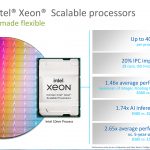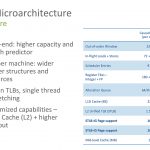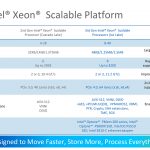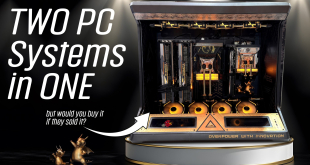Last week you were deluged by a wave of reviews around 11th Gen Intel Rocket Lake and yes, I played my part. I liked the Core i5-11600K a fair amount but was unimpressed by the Core i9-11900K. Intel's continued use of 14nm forced a reduction in core count from ten to eight while AMD Ryzen offers you 16 cores.
We all assumed that if Intel had been able to move from a 14nm fabrication process to 10nm they would have been able to increase core count and produce a CPU that could take the fight to AMD Ryzen 9 5950X. That seemed a reasonable assumption but Intel's recent launch of 3rd Gen Xeon Scalable gives us a way of checking our premise.
The new Xeon goes up to 40 cores and tramples all over the previous 28-core king-of-the-Intel-heap and it appears at first glance the combination of process shrink and increase in core count brings victory to Intel.
In addition to the raw numbers, the newish Ice Lake cores beat Cascade Lake/Icelake every which way round and this makes Intel's 3rd Gen Scalable Xeon the best Xeon you have ever seen. Intel even goes so far as to claim selective victories over AMD EPYC. The thing is, as we illustrate in our video, the clock speeds of the new 3rd Gen Xeons take a significant step back from the 14nm 2nd Gen parts at the same time that TDP increases.
Discuss on our Facebook page HERE.
KitGuru says: If Intel had produced Rocket Lake on 10nm with Ice Lake cores, we doubt the clock speed would have hit 4.5GHz, no matter how much power they threw into the equation. Sticking with 14nm looks like it was a wise move.
 KitGuru KitGuru.net – Tech News | Hardware News | Hardware Reviews | IOS | Mobile | Gaming | Graphics Cards
KitGuru KitGuru.net – Tech News | Hardware News | Hardware Reviews | IOS | Mobile | Gaming | Graphics Cards








